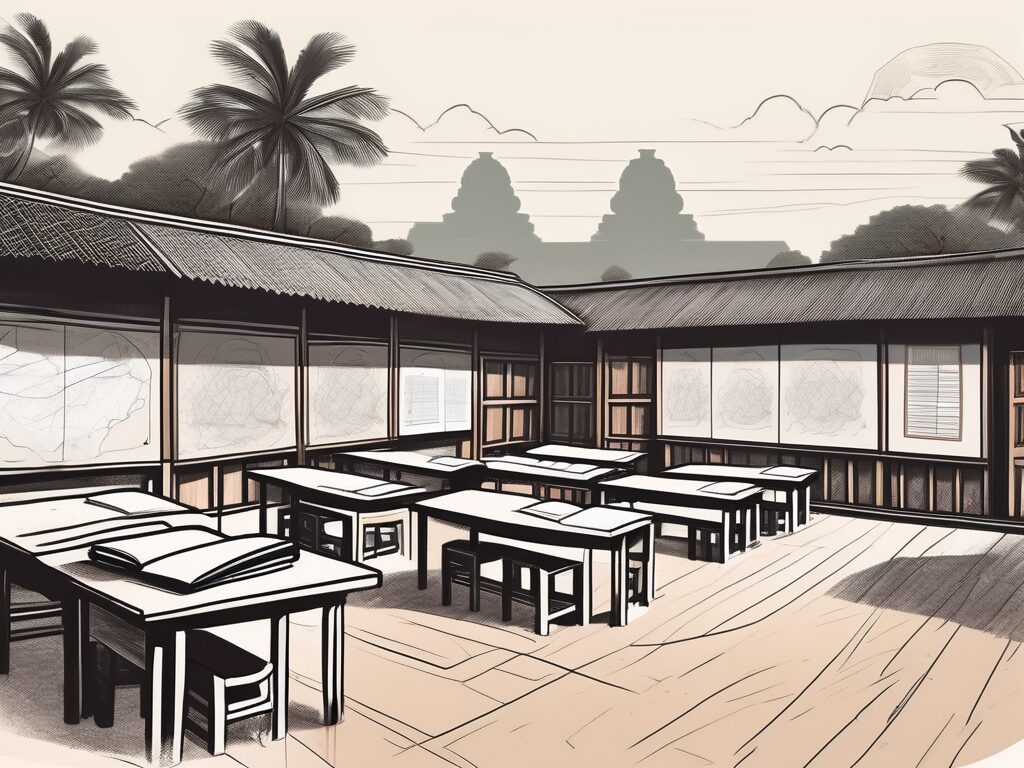Venturing into the world of teaching abroad can be an exhilarating, yet daunting experience. One of the countries that has been gaining popularity among educators is Cambodia. With its rich history, diverse culture, and welcoming locals, it’s no wonder that many are considering this Southeast Asian nation as their next teaching destination. But before you pack your bags and book your flight, there are several factors you should consider.
Understanding the Cambodian Education System
The Cambodian education system has undergone significant changes over the years. It’s important to familiarise yourself with the structure and the curriculum to ensure a smooth transition.
The system is divided into four levels: pre-school, primary, secondary, and higher education. English is taught as a second language in most schools, which opens up opportunities for foreign teachers. However, the teaching methods and materials may differ from what you’re accustomed to in your home country.
For instance, rote learning is still prevalent in many Cambodian schools. This is a stark contrast to the more interactive and student-centred approaches often used in Western countries. As a teacher, you may need to adapt your teaching style to fit this context.
Living and Working Conditions
Cost of Living
Cambodia is known for its low cost of living. Accommodation, food, and transportation are generally affordable, which can make your salary stretch further than in many Western countries. But remember, the cost of living can vary depending on the location. Cities like Phnom Penh and Siem Reap tend to be more expensive than rural areas.
Work Environment
The work environment in Cambodian schools can be quite different from what you’re used to. Resources may be limited, and classrooms often have large student numbers. It’s not uncommon to have 30 to 40 students in a class. This can be challenging, but also rewarding as you learn to adapt and innovate.
Salary and Benefits
Salaries for teachers in Cambodia can vary widely, depending on your qualifications and the type of school you work in. International schools generally offer higher salaries than public schools. Some schools may also provide benefits like housing allowance, health insurance, and paid holidays. It’s important to negotiate your contract carefully to ensure you’re getting a fair deal.
Legal Requirements and Visa Process
Before you can start teaching in Cambodia, you’ll need to meet certain legal requirements. This usually involves obtaining a work permit and a visa. The process can be complex and time-consuming, so it’s advisable to start early.
Most schools will assist you with the visa process, but it’s a good idea to do your own research as well. Make sure you understand the requirements and the timeline to avoid any last-minute surprises.
Cultural Considerations
As with any overseas teaching job, it’s essential to respect and understand the local culture. Cambodian culture is deeply rooted in Buddhism and has a strong emphasis on respect for elders and authority figures. This can influence classroom dynamics and student behaviour.
It’s also worth noting that Cambodia has a tragic recent history, with the Khmer Rouge regime leaving a deep impact on the country. Being aware of this history and sensitive to its effects can help you better understand your students and their families.
Language Barrier
While English is taught in most schools, don’t expect everyone to be fluent. In fact, many locals, especially in rural areas, may not speak English at all. This can pose challenges in and outside the classroom. Learning a few basic phrases in Khmer, the local language, can go a long way in breaking down these barriers.
Final Thoughts
Teaching in Cambodia can be a rewarding and enriching experience. It offers the chance to immerse yourself in a new culture, make a difference in the lives of your students, and grow both personally and professionally. But like any overseas teaching job, it comes with its own set of challenges.
By considering the factors outlined above, you can make an informed decision and prepare yourself for a successful teaching experience in Cambodia. Remember, preparation is key, and the more you know before you go, the smoother your transition will be.
Elevate Your Teaching Career with IPGCE
Ready to take your teaching aspirations in Cambodia to the next level? IPGCE is here to bridge the gap between your current qualifications and the demands of international schools. With our International Postgraduate Certificate in Education, you’ll not only meet stringent qualification requirements but also enhance your career prospects significantly. Experience a 50% increase in interview callbacks, a 45% boost in promotion rates, and connect with a global network of educators. Don’t let inadequate credentials or isolation limit your potential. Embrace the opportunity for professional growth and a deeper understanding of global education systems. Join the UK’s #1 Teacher Training Course today and transform your teaching journey!

